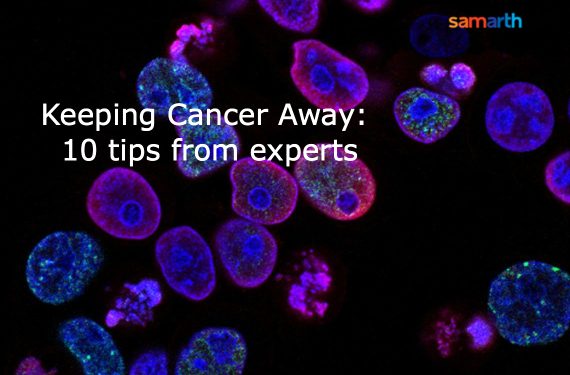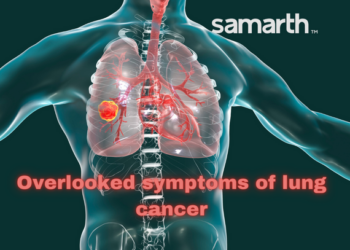Every year, cancer kills nearly 10 million people, and almost 70 per cent of these fatalities are people over 65 years. However, despite these grim numbers, scientists and doctors have made considerable progress over the years that has helped improve our chances of surviving cancer.
So, if you are a senior who is proactively looking to prevent cancer today, studies suggest that simple lifestyle changes can make a significant difference. Here are ten ways you can reduce your risk of getting cancer.
Avoid tobacco: According to studies, smoking is linked to various types of cancer — including mouth, throat, lung, larynx, pancreas, kidney, bladder, and cervix. Meanwhile, chewing tobacco can result in cancer of the oral cavity and pancreas.

Join Now >
So, avoiding tobacco in all its forms is one of the foremost changes you can make to reduce your risk of cancer. Even if you are not a smoker yourself, it is best to avoid secondhand smoke as well. And if you are having trouble quitting, reach out to a professional for advice and strategies to help you quit smoking.
Eat healthily: A nutritious and healthy diet can go a long way in reducing your risk of cancer. Make it a point to incorporate plenty of whole grains, fresh fruit and vegetables into your diet. Also include foods rich in fibre and proteins.
If you enjoy processed meats such as sausage, bacon, and hot dogs, experts suggest cutting down. Reduce your saturated and red meat intake as well as it can increase the risk of colon and prostate cancer. High-calorie foods and drinks are also best avoided.
Exercise regularly: Regular exercise helps keep obesity at bay and lowers levels of hormones such as estrogen and insulin, which have been linked to cancer. In addition, studies suggest that moderate levels of physical activity can help reduce the risk of colon cancer as well as breast and reproductive cancers in women.
So, if you are someone who has a sedentary lifestyle, we suggest you get moving and aim to incorporate at least 30 minutes of physical activity in your daily routine. From brisk walking to gardening, yoga, swimming and tennis – getting regular exercise does not mean you have to hit the gym every day. Instead, you can keep things fun by picking up a sport or a hobby that involves some level of physical activity.
Maintain a healthy weight: Staying fit and healthy has its benefits, of course, but did you know that maintaining a healthy weight can also lower the risk of various types of cancer such as cancer of the colon, kidney, breast, pancreas, lung and prostate. According to some experts, this is because adipocytes or fat cells release substances that support tumour growth.
If you are struggling to maintain a healthy weight, we suggest you start by cutting out the junk in your diet. The secret to keeping off the kilos is regular exercise and a calorie deficit diet that is rich in vitamins and nutrients.
Use sunscreen: Who doesn’t love soaking in the sun, especially in the winters? However, without protection, UV rays from the sun cause damage that could result in skin cancer. So, before you get some sun, we suggest you lather on a broad-spectrum sunscreen with an SPF of at least 30, even on cloudy days.
Although skin cancer is one of the most common forms of cancer, experts also believe it is preventable. Avoid stepping out when the sun is strong, and if you do step out, cover exposed areas and reapply sunscreen every two hours. Use sunglasses and broad-brimmed hats to protect your eyes and face.
Cut down on alcohol: If you indulge in alcohol, it is a good idea to limit your intake. Excess alcohol can increase the risk of cancers of the liver, colon, mouth, larynx and oesophagus; it also increases a woman’s risk of breast cancer.
Get regular medical check-ups: Regular screenings can help catch signs of cancer early – which can be a gamechanger in due course of time.
While women can get pap smears and mammograms to detect cervical and breast cancer, men can opt for colonoscopy and prostate exams to detect colon, rectum, and prostate cancers. Reach out to your healthcare professional for the best cancer screening schedule for you.
Trace your family history: You may have your mother’s eyes and your father’s nose, however, you may have also inherited their cancer genes. This is why it is crucial to trace your family history and reach out to your healthcare professional for genetic testing if the need arises.
Avoid exposure to toxins: Carcinogens are chemicals that have the ability to genetic damage to your DNA, which can increase your risk of having cancers. Asbestos, arsenic, radon, and benzene are some of the known carcinogens, and we should avoid contact with these chemicals at all costs.
Some chemicals in weedkillers, pesticides and industrial-grade cleaners can also pose health risks. So, always do your research before you buy a new product.
Get vaccinated: Not only the COVID-19, but vaccines can also help protect you against certain forms of cancer. While hepatitis B vaccinations have been integrated with the Universal Immunization Program (UIP) in India, the awareness about HPV vaccination is pretty low.
Human papillomavirus or HPV is a sexually transmitted infection that can result in different forms of cancer, including cervical. Although doctors suggest getting the HPV vaccine before the first sexual intercourse, it is quite alright to even get it by your mid-twenties.











